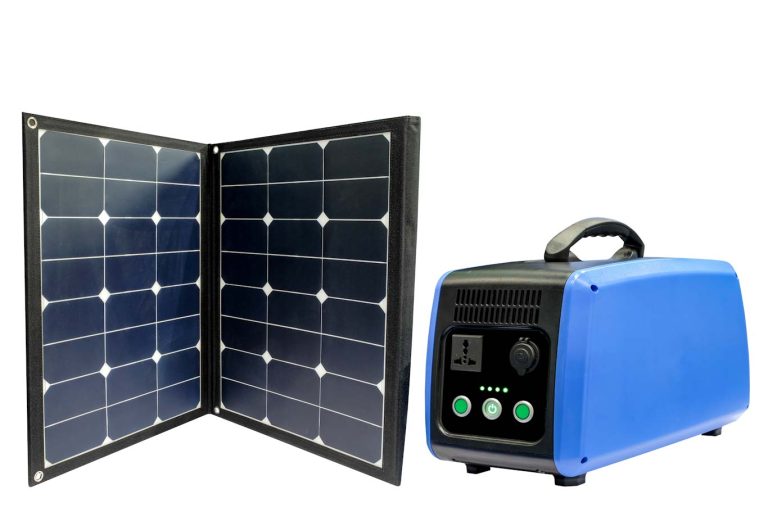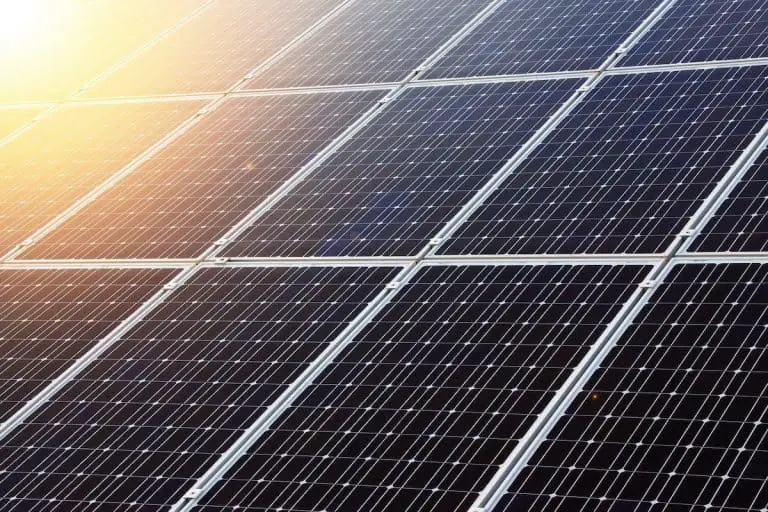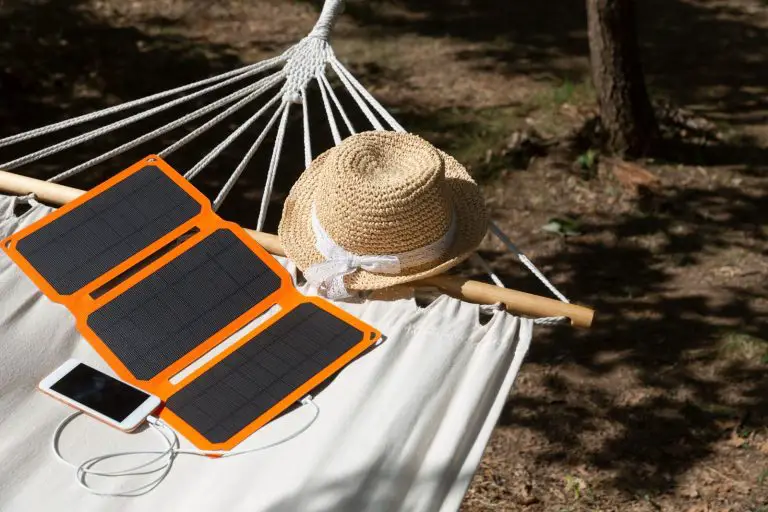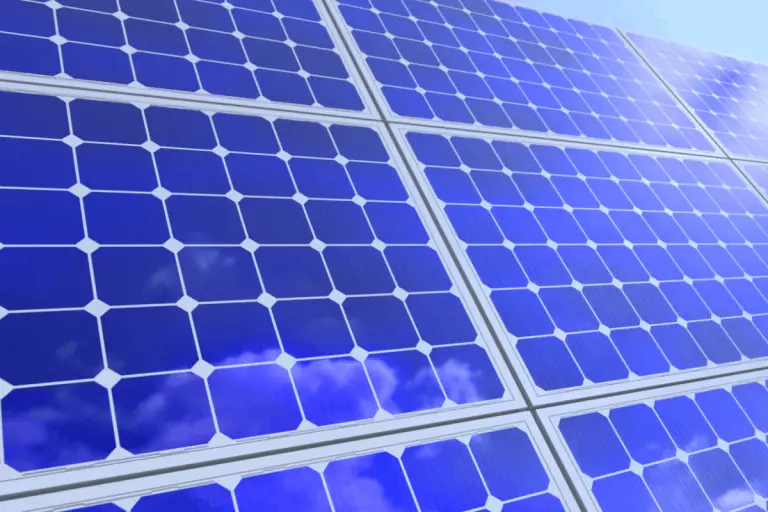7 Reasons Why Solar Refrigerators Are Worth It
Are you considering buying a solar refrigerator? There are many instances when a solar refrigerator might be handy, especially for those living off the grid or who often travel to places without electricity.
But, many use solar refrigerators in their household to lower utility bills.
A solar refrigerator can provide a lot of comfort when camping, fishing, boating, tailgating or any other outdoor activity. Factors that make them worth buying include:
- Security in case of power outages
- Independence from the grid
- Higher efficiency
- They use clean energy
- Easy to install and operate
- Little maintenance required
- Money-saving
But are solar refrigerators worth it, or should you go for a traditional fridge? Let’s find out.
What Is A Solar Refrigerator?
A solar-powered refrigerator uses the sun as an energy source through various methods. The most common is through solar panels composed of photovoltaic cells, but another method is the use of solar thermal energy.
Solar refrigerators are instrumental in getting perishable food and goods brought to places without electricity. In addition, it can be handy for outdoor activities such as fishing, camping, moving in an RV, etc.
The uses of solar refrigerators for humanitarian purposes to bring food and medicine to those in need are multiple. But, solar refrigerators are very useful for private services too.
For example, some activities for which you might need a solar refrigerator to service a household powered by solar energy, vacationing in a place without power and outdoor life in general, and when living off the grid.
How Does A Solar Refrigerator Work?
Generally, a solar refrigerator can be connected to solar panels and run through the electricity generated. It is also possible to have solar panels powering a battery, providing electricity to the refrigerator.
Solar panels are placed on the house roof, RV, or in a location with a lot of sunlight, depending on if they are portable panels or larger fixed panels.
Those solar panels have several photovoltaic cells that can harvest the sun and convert it into electricity.
When the sunlight hits the photovoltaic cells, the photons cause the electrons to get into action and convert into an energy flow. This electricity can directly power the refrigerator or other devices or be connected to a battery bank.
The batteries are essential for those who wish to run the refrigerator when there is no sun, such as on cloudy days or in bad weather.
One of the main characteristics of a solar refrigerator is the improved insulation to make sure the cold air can stay inside and economize energy.
What Do I Need To Run A Solar Refrigerator?
In general, running a solar refrigerator requires at least compatible solar panels and the correct wiring to ensure that it can power the fridge (charge controller, inverter, etc.); sometimes, a solar battery might be necessary.
The additional devices for the wiring are necessary because a refrigerator runs on AC (alternate current) and gets the electricity from a solar panel, which usually produces DC (direct current).
An inverter ensures that the electricity can convert appropriately, so two devices run on the same type of electricity.
The whole kit to run a solar refrigerator would be:
Solar Fridge Kit
- Solar panels
- Solar battery
- Power inverter
- Charge controller
- Compatible refrigerator
A charge controller ensures a smooth electricity flow between the solar panels, the battery, and the refrigerator. In addition, it helps prevent significant fluctuation of energy that could damage the battery and the fridge.
But, if you want a system you can use even when there is no sun, you also need a battery. This way, you can still use the refrigerator during the night. If you opt for the solar battery solution, you also need regular maintenance to prolong battery life.
Can You Run A Regular Fridge On Solar?
Any refrigerator can run on solar energy, providing you have the right equipment, the proper wiring, and the correct numbers of solar panels. If the configuration is suitable, solar energy can power any fridge.
It is also true for portable refrigerators. You can set up your fridge correctly to run on solar energy if you have the correct wiring and devices such as inverters, charge controllers, etc.
Why Is A Solar Refrigerator Better Than A Traditionally Powered Fridge?
Refrigerators built to run with solar energy are more resistant and efficient because they must run off the grid and often outdoors, where they have to withstand the bad weather and various falls.
Solar refrigerators have the following advantages when compared with traditional fridges:
- Higher energy efficiency
- Cost-effective
- Higher durability
- Quieter
- Eco-friendly
Higher Energy Efficiency
Solar refrigerators are energy efficient. It means that they use less energy to run. Since they consist of better materials, they can also last longer than traditional fridges, making the initial investment worthwhile.
Cost-Effective
The energy efficiency makes solar refrigerators cost-effective, which means they are cheaper to operate over a long period. The most apparent convenience lies in the fact that no money is spent on energy bills. Once the fridge can run on solar, there are no more expenses.
Quieter
Another excellent characteristic of solar refrigerators is their quieter operation. The noises are so low that you might not even hear the fridge running.
The reason for a quieter operation is due to the compressor. Traditional fridges use a compressor with pistons, while solar refrigerators use a different type that produces more minor noises.
What Are The Advantages Of Solar Refrigerators?
Solar refrigerators provide many advantages to users looking to utilize their appliances with solar panels.
Here are some of the main advantages:
- Security in case of power outages
- Independence from the grid
- They use clean energy
- Easy to install and operate
- Little maintenance required
- Money-saving
Security In Case Of Power Outages
Independence from the grid is one of the most significant advantages. For example, if hyou have a solar fridge, you can use it when there is no power and prevent food from spoiling.
It can be beneficial for those living in areas where electricity often blows.
At the same time, it is an essential appliance in the regions that do not have access to the grid. It is perfect to use outdoors when you do not have a power outlet nearby.
High Efficiency
Solar refrigerators can operate with less energy. Some models require only a 250 watts panel and a few batteries so that they can run all day.
They are designed to maintain the cool air inside as much as possible through proper insulation and can make the most out of the electricity used.
Use Clean Energy
Like any other solar device or appliance, a solar refrigerator is eco-friendly. It uses only renewable energy (sunlight) that doesn’t damage the environment.
While there are concerns about recycling solar panels and batteries, sunlight is still one of the best green energy sources.
It Is Easy To Install
A solar fridge is easy to use and install. While the refrigerator does not come with solar panels and batteries, it is relatively easy to find compatible devices to use with them.
In addition, the wiring is pretty straightforward, even if you have to use a charge controller or an inverter. If you already have a solar system, you can easily find a compatible solar fridge and plug it in.
Little Maintenance Required
Solar refrigerators do not require much maintenance since there aren’t many moving parts to consider.
Solar panels can last many years, and solar refrigerators can last as long as five years, even with minimal attention.
However, routine cleaning is enough to keep the fridge in good shape for many years.
Lower Noises
Solar panels do not produce noises when collecting the sun. At the same time, solar refrigerators do not have mechanical parts that a regular fridge would use to operate, which are generally noisy.
Low Cost
Whether you use a solar refrigerator outdoor or indoors, no electric bills are coming from it.
The initial investment to buy the refrigerator (which costs more than regular fridges) is recovered within a few months. Even if you have to get solar panels and connecting wires, it is true.
While there are many advantages to solar refrigerators, there are also some disadvantages, especially those related to the energy source. Solar refrigerators depend entirely on the weather.
But there are ways to resolve the negative points and still get the most benefits from solar-powered fridges.
Disadvantages
Some disadvantages or points to consider before getting a solar refrigerator are:
Initial Investment
Solar refrigerators are more expensive than other fridges, and if you do not have solar panels or batteries, you have to get them too. The necessity to invest a large amount of money can be a deterrent for many people.
However, a solar fridge and solar panels can last for a long time to get back the money initially invested by lowering utility bills or using them for a long time in your outdoor activities.
Dependence On Weather Conditions
The sun is not always there because of bad weather or during the night. Fortunately, a battery bank can remedy the situation. Solar panels keep charging the batteries throughout the day, so they are ready for use at night.
However, those living in an area with stable weather can benefit more from solar energy than those living in countries with variable and bad climates.
What To Look For In A Solar Refrigerator?
Getting a solar refrigerator can be costly; choosing it right from the beginning is essential. If you want to make the best possible choice, here are some guidelines to follow:
Size
Size is an essential factor depending on your use of a solar refrigerator. If you want a portable fridge with solar power, it is better to use a smaller size. The number of solar panels needed to power a refrigerator varies with size.
Solar refrigerators can be for outdoor, commercial, or domestic use, and their sizes change accordingly.
If you picked a small size fridge for a solar refrigerator to use in the house, it might be too small to suit your needs. On the other hand, if you choose a large-size solar refrigerator to use outside, it could be too heavy to carry.
It might not be convenient to select a big fridge to carry with you on your camping trip or when traveling to multiple locations.
Costs
The costs involved in getting a solar refrigerator and the equipment that goes with it are primary considerations for most people.
Unfortunately, not everyone has a huge budget, and buying the most expensive refrigerator is not always the thing to do. A costly solar refrigerator could have a lot of extra features you do not need if you go out once in a while.
Each of the products has its strong points and weaknesses. Depending on your needs, you might choose a cheaper product that can serve you better when you go outdoors or when you use it in the RV.
Level Of Insulation
One of the critical things to look for when choosing a solar refrigerator is the insulation’s quality. Good insulation ensures no cold air escapes; thus, less energy is necessary to maintain a specific temperature.
If you want your battery to last longer or your fridge to consume less, a solar refrigerator with higher insulation capabilities is the best choice. For example, insulation between 2 and 3 inches can keep the food cool for a while, even if there is no power.
Type Of Storage
Ultimately, a fridge has the purpose of storing goods you require and keeping them fresh. If there is not enough space or the space available is not suitable to store the foods you need, there is no point in getting the fridge in the first place.
There are many kinds of refrigerators with various sizes of racks, shelves, drawers, and compartments to keep things organized. Consider which one is better for you before making a final decision.
You should also check if the shelves are removable or fixed. Fixed shelves can prevent you from organizing the fridge like you want or need. On the other hand, removing unneeded shelves could get extra space so you can fit more things.
Portability
How portable is the solar refrigerator? The size is only one characteristic that helps make a solar refrigerator portable.
If you go fishing, camping, or want to attend family events, you might want to consider the presence of wheels, handlers, or other features that makes a fridge easy to move.
If the refrigerator is too heavy, it won’t be easy to carry. A lighter model is better if you want to move around a lot.
Extra Features
Although having extra features on a solar refrigerator might not be necessary, it is nice to have additional comforts and options available in moments of necessity.
Modern technology allows manufacturers the possibility to make their refrigerators versatile and perform extra functions that are not related to keeping goods cold.
Here are some extra features to look for:
- USB ports
- Drain plug
- Lights
LED lights can be beneficial when you want to pick up something from the fridge at night. Light can help you see what you are taking.
USB ports on the refrigerator allow you to charge mobile devices on the go. It can be an excellent option if you run out of battery on your phone.
A drain plug can be handy if you want to clean the fridge. You can use it to drain water from the refrigerator without hassle.
Should I Get A Solar Refrigerator Without Matching Solar Panels?
You do not have to get a solar refrigerator that has matching solar panels at the same time. However, if you do, you can avoid compatibility problems between the different parts and difficulties setting up the wiring correctly.
For example, the charge controller is set up correctly when you get matching panels with your fridge. Then, it becomes just a matter of “add water and mix,” in other words, you need to plug things together.
On the other hand, if you get a solar refrigerator without matching solar panels, you have to be extra careful to check the compatibility of the fridge with the panels you have.
Frequently Asked Questions
How Many Solar Panels Do I Need To Run A Refrigerator?
A refrigerator needs a 100-150 watts solar panel or two 100 watts panels. If you have a large refrigerator that consumes more, you might need solar panels with a more powerful output, considering there must be power for the fridge all day long.
How Long Does A Solar Refrigerator Last?
Generally, a solar refrigerator can last up to five years if well-maintained. However, many solar refrigerators are used for outdoor activities and could fall or get damaged even before they live up to five years. Therefore, users must take care of the refrigerator when moving around to prolong its life as much as possible.
What Are The Positives Of Solar Energy?
Solar energy has many positive points, such as being zero-cost and eco-friendly. It is low maintenance, and a solar setup can run for many years. In addition, it allows people to be independent of the grid and the outcome of power outages. Sometimes, it is the only solution for those living in places not serviced by power companies.







